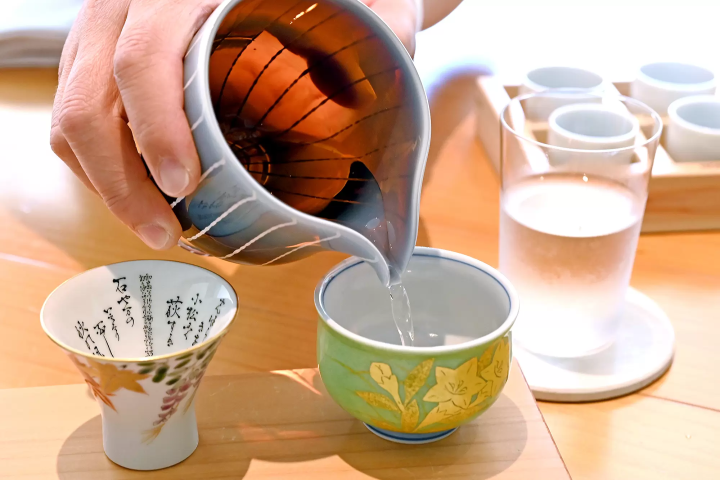A complete guide to the highlights of Ozu Castle, the symbol of Ozu, Ehime Prefecture

Ozu Castle, a four-story wooden reconstruction, is a symbol of Ozu City and a must-see spot when sightseeing in Ozu. In this article, we will briefly introduce the history, points of interest, and ways to enjoy Ozu Castle so that you can enjoy sightseeing even more.
-
Table of Contents
- A brief introduction to the highlights of Ozu Castle!
- A symbol rooted in the region
- A four-story wooden castle tower faithfully restored to its original appearance.
- Four turrets that escaped demolition
- Sprinkled with playfulness
- Also lit up at night
- First in Japan! A castle tower where you can stay overnight
- A castle town where traces of those days remain.
- Equipment outline
A brief introduction to the highlights of Ozu Castle!

Ozu Castle is a must-see when sightseeing in Ozu.
I think there are many people who say, ``I want to go there, but I don't know much about castles.''
In this article, we will briefly introduce the history, points of interest, and ways to enjoy Ozu Castle so that you can enjoy it even more!
Also, when you come to Ozu Castle, we recommend staying at NIPPONIA HOTEL Ozu Castle Town. If you are staying overnight, please also refer to the article below.
A symbol rooted in the region

First, I will introduce a brief history of Ozu Castle.
Ozu Castle is thought to have been built in 1617 by Yasuharu Wakisaka.
Unfortunately, the castle tower of Ozu Castle was demolished in 1888, but it was rebuilt in wood in 2004 based on historical materials such as photographs of the time and a wooden model called the castle tower hinagata.
In addition, the Kitchen Yagura, Takaran Yagura, Owata Yagura, and Sannomaru Minamisumi Yagura towers have all survived demolition and are designated as important cultural properties of the country.
A four-story wooden castle tower faithfully restored to its original appearance.
Ozu Castle has been accurately restored as a wooden structure, but before the restoration, there was also a plan to restore it with reinforced concrete.
However, thanks to the passionate requests of local residents, research by experts, and the hands of many craftsmen, we succeeded in restoring the wooden castle tower to its original appearance.
All of the wood used to rebuild Ozu Castle was sourced from Japan, with 40% coming from Ozu and the rest collected from all over the country.
In order to bring the castle closer to its original appearance, craftsmen carefully researched and determined which wood from which location to use.
When you visit, try to imagine how the people of the time created the woodwork and internal structure in an era before computers.
Four turrets that escaped demolition

The castle tower of Ozu Castle has been rebuilt, but four turrets, the kitchen turret, Koran turret, Owata turret, and Sannomaru south corner turret, escaped demolition and are all designated as important cultural properties of the country. It has been.
The high railing turret and kitchen turret in the photo are connected to the castle tower, so we recommend comparing the existing turret and the restored castle tower.
Sprinkled with playfulness
Ozu Castle has a lot of playfulness in its restoration, so I'll introduce some of them.

Inside the castle tower, there is a diorama that recreates what Ozu Castle looked like when it was built, allowing you to think about how Ozu Castle was built 400 years ago and what it looked like back then. .
Seventy of the figures in the diorama were modeled by craftsmen of the time, and 50 were modeled after winners selected from a public contest.
There is also a carved wooden ladybird carved by a carpenter at the time using a knot from a tree.
When you visit, be sure to keep your eyes peeled and look for it.
There is also a legend that says, ``A ship with a mouse on it will never sink,'' so when the ship was being restored, a carpenter took on the experience and placed a mouse doll on the beam, so be sure to look for it when you visit. .
Also lit up at night

Ozu Castle is lit up at night.
Since the nights in Ozu are not bright, the shining presence of Ozu Castle becomes even greater.
You can also go to the bottom of the castle tower even after closing time, so be sure to take a close look at the illuminated Ozu Castle.
First in Japan! A castle tower where you can stay overnight

At Ozu Castle, you can stay in the castle tower for as little as 1.1 million yen per night.
Don't just stay in the castle tower, you can also experience the scene of entering the castle, watch the traditional performing arts enjoyed by the former castle lords, and enjoy the luxurious lord's presence made with local ingredients that are said to have been presented to the Ozu clan. I can.
In addition to lodging, we also offer sightseeing in the Ozu area and various experiences, and we provide custom-made itineraries.
A castle town where traces of those days remain.

Efforts are currently underway to preserve Ozu's historical resources by renovating vacant Meiji and Taisho buildings and turning them into shops and hotels.
Walking around Ozu, where traces of those days remain, will make you feel as if you have traveled back in time.
When you visit Ozu Castle, be sure to take a walk through the castle town.
Equipment outline
Ozu Castle is open all year round. Business hours are from 9:00 a.m. to 5:00 p.m., and the ticket gate closes at 4:30 p.m.
▼Business hours
9:00-17:00 (Fujitsu 16:30) Open all year round
▼Admission fee
Adult: ¥550
Children: ¥220 (junior high school students and under)
▼Common ticket (Ozu Castle, Garyu Sanso, Bansenso)
2 facilities (Ozu Castle and Garyu Sanso)
Adult: ¥880
Children: ¥330 (junior high school students and under)
3 facilities (Ozu Castle, Garyu Sanso, Bansenso)
Adult: ¥1,100
Children: ¥440 (junior high school students and under)
Children under 5 years old accompanied by a guardian are free.
Admission is free for those aged 65 and over who live in the city.
Admission is free for those with a physical disability certificate, rehabilitation certificate, or mental disability welfare certificate.
Groups of 20 or more get a 20% discount.
Ozu City is located in the western part of Shikoku, in the region known as Nanyo, and is an area centered around the Ozu Basin, facing the Seto Inland Sea to the north and the Shikoku Mountains to the south. The clear Hijikawa River flows through the center of the city, and as its name suggests, the river curves like an elbow as it runs through the town, bringing many blessings to the city, including nature, history, culture, and local specialties. Remnants of the city's prosperity as a castle town around Ozu Castle during the Edo period still live on the banks of the Hijikawa River.
The contents on this page may partially contain automatic translation.




























![[Shinjuku Nishiguchi HALC] About the d Point Campaign](https://resources.matcha-jp.com/resize/720x2000/2026/02/14-258714.webp)



